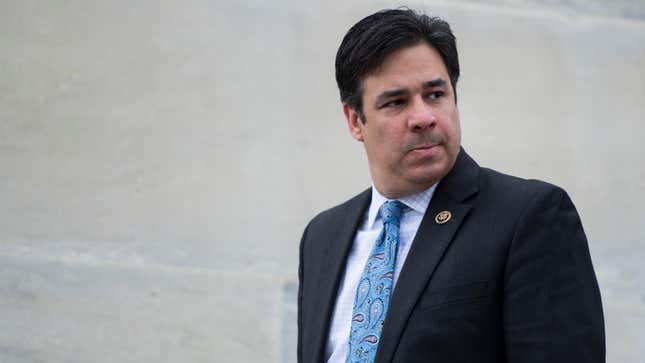Idaho’s Republican AG Says Professors Can’t Be Criminalized for Mentioning Abortion—in Some Contexts
A legal expert worries AG Raúl Labrador's recent opinion is just a means to throw out an important ACLU lawsuit challenging a 2021 statute's constitutionality.
AbortionPolitics

In a lengthy opinion filed on Thursday, Idaho Attorney General Raúl Labrador (R) wrote that the state’s No Public Funds for Abortion Act (NPFAA), a statute that was first adopted in 2021, doesn’t prohibit professors from speaking about abortion in certain contexts. The opinion comes about three months after six Idaho university professors and two teachers’ unions that work across the University of Idaho, Boise State University, and Idaho State University filed a lawsuit challenging NPFAA in the U.S. District Court for the District of Idaho, represented by the ACLU.
NPFAA states that it’s a crime punishable with up to 14 years in prison to use public funds to “promote” or “counsel in favor of” abortion. The ACLU’s lawsuit from August accused the statute of prohibiting teaching, discussion, and even research and scholarship about abortion at publicly funded institutions, including universities. The suit calls on the court to recognize NPFAA as unconstitutionally vague and a violation of the First Amendment rights of professors across Idaho’s public universities.
According to Labrador in his opinion—which is a response to a state legislator’s recent request for clarification on the statute—NPFAA “does not prohibit university employees from speaking on abortion in their academic teaching or scholarship” and can’t be enforced for this purpose.
But, Labrador writes, university employees who speak to students outside an academic context—say, to counsel them on abortion or perhaps offer resources during office hours—could be in violation of NPFAA, and thus, subject to possible prosecution.

That’s just one aspect of Labrador’s opinion that concerns Foundation for Individual Rights and Expression (FIRE) attorney Adam Steinbaugh. On the one hand, the opinion “is helpful to provide a sort of reassurance about the scope of this law, how it doesn’t stop faculty from scholarship and teaching,” Steinbaugh told Jezebel. On the other hand, Labrador’s opinion formally requests that Idaho public university professors’ lawsuit be thrown out altogether. “It’s, ‘this policy can’t be enforced that way so we don’t need this lawsuit,’” he explained. However, the suit remains important to recognize the violations of academic faculty’s free speech rights and challenge the constitutionality of NPFAA. Labrador’s opinion should also be taken with a grain of salt as he’s a staunchly anti-abortion Republican who’s led the charge on blocking minors’ abortion access.
Scarlet Kim, senior staff attorney with the ACLU’s Speech, Privacy, and Technology Project and the lead attorney on the case, told Jezebel in August that NPFAA has had a chilling effect on faculty speech and research on abortion since the Supreme Court overturned Roe v. Wade and Idaho’s abortion ban took effect. Kim said she’s heard from professors who are “declining to pursue research into abortion or abortion-related topics,” including maternal mortality, for their safety. “How can we teach about U.S. society without addressing abortion—one of the defining cultural and political issues of the day?”
Last fall, the University of Idaho wrote a letter to its faculty warning that teaching about abortion in class or even providing condoms “for purposes of birth control” (and not merely “for the purpose of helping prevent the spread of STDs”) could result in criminal charges. The letter, shared with Jezebel, states that following these rules from prior to the overturning of Roe has become necessary as it’s not clear what will land someone in prison today. “Since violation is considered a felony, we are advising a conservative approach here,” the letter states. “Academic freedom is not a defense to violation of law, and faculty…must themselves remain neutral on the topic and cannot conduct or engage in discussions in violation of these prohibitions without risking prosecution.”
Across Idaho, attacks on free speech are a significant part of the state’s strategy to block abortion access. As of this spring, adults who help minors even access information and resources to get abortion care where it’s legal out-of-state can be punished with up to five years in prison. “What we’re seeing across the country is a lot of old laws, or laws from before Roe fell, popping up, confusion about what can and can’t be enforced now, and how,” Steinbaugh said. These laws extend beyond abortion bans to restrictions on a range of abortion-related speech and behaviors, he notes. And a promise from a Republican attorney general with a chilling anti-abortion record that NPFAA won’t be enforced against professors in specific contexts isn’t trustworthy—especially as Labrador tries to throw out a lawsuit to protect faculty.